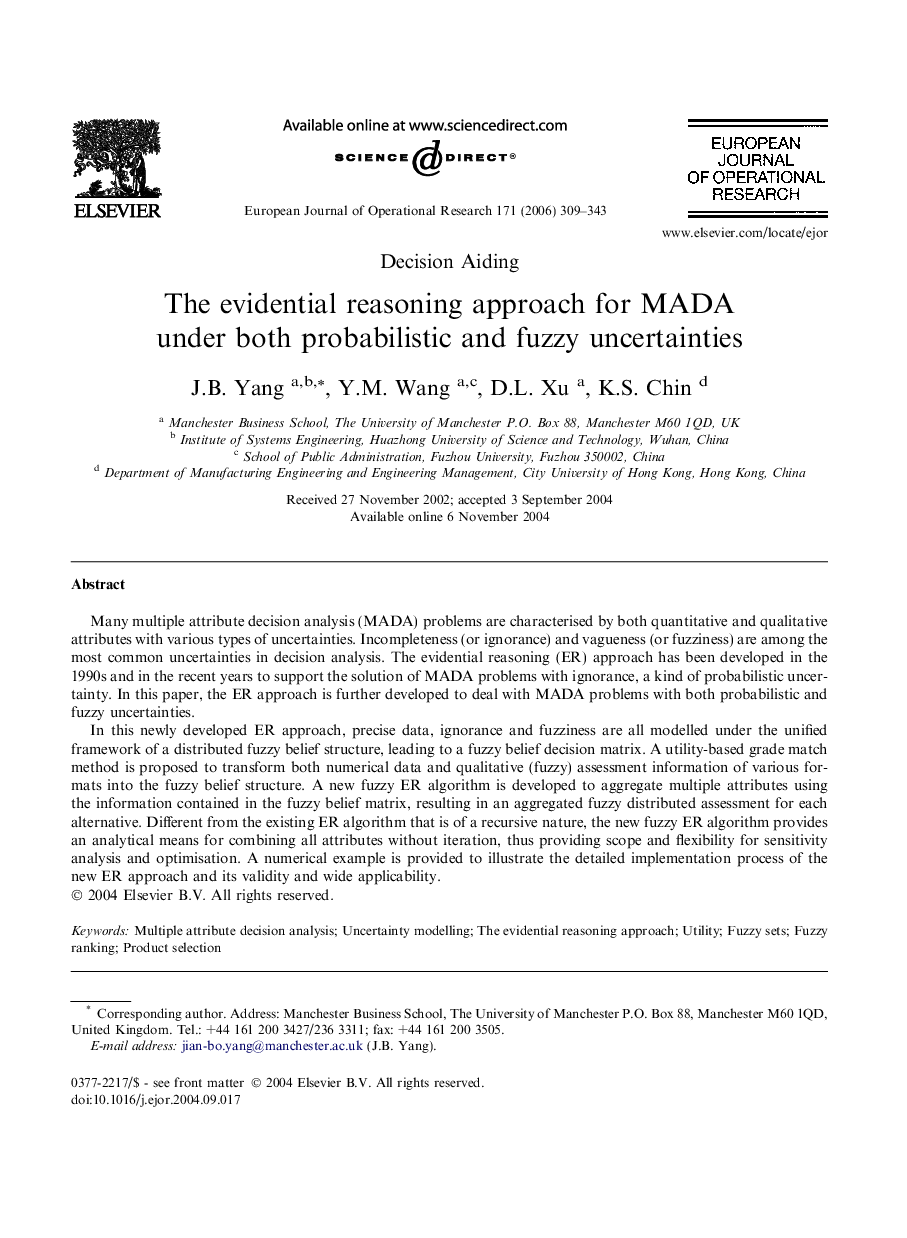| Article ID | Journal | Published Year | Pages | File Type |
|---|---|---|---|---|
| 478009 | European Journal of Operational Research | 2006 | 35 Pages |
Many multiple attribute decision analysis (MADA) problems are characterised by both quantitative and qualitative attributes with various types of uncertainties. Incompleteness (or ignorance) and vagueness (or fuzziness) are among the most common uncertainties in decision analysis. The evidential reasoning (ER) approach has been developed in the 1990s and in the recent years to support the solution of MADA problems with ignorance, a kind of probabilistic uncertainty. In this paper, the ER approach is further developed to deal with MADA problems with both probabilistic and fuzzy uncertainties.In this newly developed ER approach, precise data, ignorance and fuzziness are all modelled under the unified framework of a distributed fuzzy belief structure, leading to a fuzzy belief decision matrix. A utility-based grade match method is proposed to transform both numerical data and qualitative (fuzzy) assessment information of various formats into the fuzzy belief structure. A new fuzzy ER algorithm is developed to aggregate multiple attributes using the information contained in the fuzzy belief matrix, resulting in an aggregated fuzzy distributed assessment for each alternative. Different from the existing ER algorithm that is of a recursive nature, the new fuzzy ER algorithm provides an analytical means for combining all attributes without iteration, thus providing scope and flexibility for sensitivity analysis and optimisation. A numerical example is provided to illustrate the detailed implementation process of the new ER approach and its validity and wide applicability.
